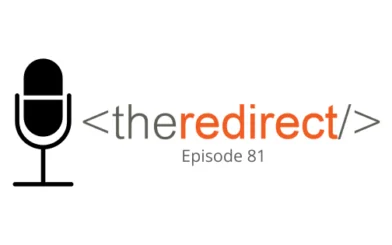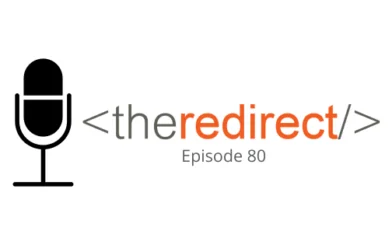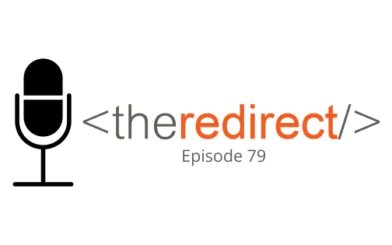Episode 7 / June 30, 2017
Listen Now:
In Episode 7 of The Redirect Podcast, we discussed:
- The new Google Website Builder
- Google Posts not yet available to all businesses
- Google testing automated headlines in Adwords
- Voice search and voice assisted devices
- Using data to create great content
Google Website Builder
Search Engine Land shared an SEO review of Google’s new website builder. A business must be verified in Google My Business to be able to build one of these free websites with Google.
Among the pros are that you can buy a custom domain for a fee to avoid a “yourbusinessname.business.site” URL. The sites are easy to create and customize (to an extent) with images and design elements, they’re mobile friendly, managed through Google My Business, and feature an embedded Google Map and your business’s hours and contact information.
From an SEO perspective, there is not much value to the website beyond having a legitimate web presence that you can have some control over. The website is a single page without the ability to add meta page titles or descriptions. However, Google websites provide an option for small businesses that aren’t able to maintain a larger website.
Google Posts Not Yet Available to All Businesses
Search Engine Journal shared that Google Posts haven’t rolled out to all business categories yet, specifically hotels. There is a way to contact Google and let them know you want access. If you aren’t sure whether you have access, check in Google My Business. Posts are featured in your business’s Google My Business dashboard if they are available to you.
Headline Tests in Google AdWords
From Search Engine Land’s Spotted in AdWords corner: Check a Box and Automatically Create a Headline Test. This feature is not currently available to AdWords users, but this is a good reminder that marketers should always be testing their PPC ads. This particular feature would free up users from manual A/B testing and let machine learning figure out a better ad. When a box is checked for “Create a second ad with headlines in reverse order,” Google’s machine learning process will “re-engineer” the headline and serve up the best-performing option. Better ads are good for advertisers, good for searchers…and good for Google’s pocketbook, of course!
Whether or not this automating feature rolls out to all AdWords users, let this be a reminder to constantly be testing your PPC ad copy, headlines, and extensions. Set your ads to rotate evenly for a period of time and see what performs best over that span.
Voice Search & Voice Assisted Devices
Voice search and voice assisted devices are consistently in the news lately as voice search is shaping the best practices of SEO. A recent article from Search Engine Land shares why B2B marketers need to pay attention to voice search. We know that the first result in Google is what will be read out loud for voice search results. If that result is a featured snippet, the whole featured snippet will be read, including the source. This means the source is essentially regarded as the expert on the subject. Optimize for the featured snippet to be that result that’s read by Siri, Alexa, or Google Assistant. [Related: What is Position Zero in Google?]
The article mentioned that Google’s voice recognition technology is 95% accurate, an almost 20% improvement since 2013. A survey shared in the article also seems to imply people are generally shy about using voice search in public. It will be interesting to see if this changes over time.
CMO by Adobe recently reported that the number of voice-assisted device sold are up 39%. Again, natural language will continue to play a huge role in SEO as the adoption of these devices continues to grow. You can’t optimize for voice searches if you’re using tactics that are five years old, or your site has content that was written three years ago, and not necessarily written for a human.
The focus for voice search is on long-long-tail queries. But there currently aren’t tools that can show us data on these kinds of queries; we still need to add words around a core query we can track. For now, we can see what kinds of longer queries are bringing traffic to a site in Google Search Console and AdWords search term data.
Using Data to Create Great Content
From the Moz Blog: Using Data to Produce Great Content gives some ideas for mining great content ideas from data unique to your company or geographic location. Look for trends in Google Analytics, Search Console, and AdWords data to find a topic to pursue. Perhaps there are keywords or activities that are more popular at certain times of year, such as holidays, events, or festivals, that might make your data unique and interesting to readers. The article also suggests using sales data and survey data as a source for content.
That’s it for this week! We’re heading into the 4th of July holiday. It will be interesting to see how the holiday landing during the week will affect activity and analytics in different industries.
Thanks for tuning in! To catch future episodes of The Redirect Podcast, subscribe on Soundcloud, iTunes, or Stitcher.




